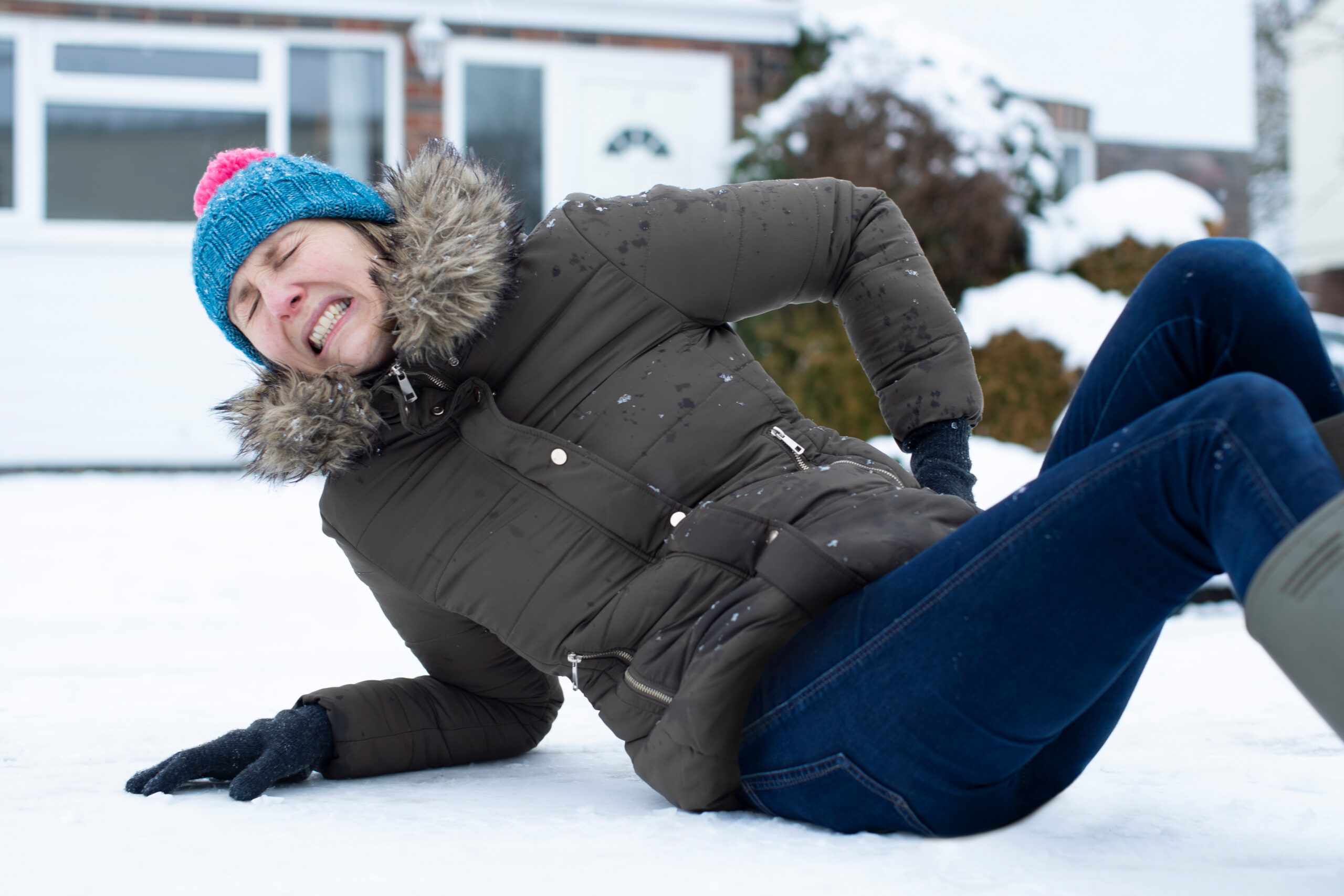6 Ways People Get Injured in the Winter: How to Stay Safe This Season

As winter settles in, the risks of injury increase due to colder temperatures, slippery surfaces, and seasonal activities. Whether it’s the hazards of icy sidewalks or the hidden dangers of winter sports, staying safe during the colder months requires extra attention and care. In this blog, we’ll cover 6 ways people get injured in winter and offer practical tips to help you avoid them.
-
Slips and Falls on Ice and Snow
One of the most common winter injuries comes from slipping on ice or snow. In areas like walkways, driveways, and parking lots, ice can form unexpectedly, making surfaces slick. Falls can result in anything from minor bruises to serious fractures or head injuries.
How to Stay Safe:
- Wear the Right Shoes: Opt for boots with non-slip soles to provide better traction. Avoid high heels or shoes with smooth soles when walking on ice.
- Salt and Sand Your Walkways: If you’re a homeowner or business owner, spread salt or sand on sidewalks and driveways to reduce the likelihood of ice forming.
- Walk Slowly and Carefully: Take smaller steps and keep your hands out of your pockets for better balance. If possible, avoid walking on icy patches altogether.
-
Car Accidents Due to Slippery Roads
Winter weather can make driving treacherous. Icy roads, poor visibility, and snow accumulation can make it difficult to navigate safely, leading to accidents. Rear-end collisions and skidding are common during the winter months.
How to Stay Safe:
- Drive Slowly: Reduce your speed in winter conditions. It may take longer to stop or react to road hazards when the pavement is icy.
- Ensure Your Vehicle Is Winter-Ready: Check that your tires are properly inflated, and replace any worn tires. Keep your windshield wipers in good condition and always ensure you have enough windshield washer fluid.
- Keep Distance: Give yourself more space to react. It takes longer to stop in snowy or icy conditions, so it’s important to maintain a larger buffer from the car in front of you.
-
Shoveling Snow
Shoveling snow is a winter task that many people perform without thinking about the strain it places on the body. Improper lifting or overexertion can lead to back injuries, muscle strains, and even heart problems.
How to Stay Safe:
- Warm Up First: Just like any other physical activity, warming up before you start shoveling can reduce your risk of muscle strain. Stretch your back, arms, and legs.
- Use Proper Techniques: Bend your knees, not your back, when lifting snow. Don’t overload the shovel, and avoid twisting your body to throw snow to the side.
- Take Breaks: Don’t overexert yourself by shoveling for long periods. Take frequent breaks to rest your muscles and hydrate.
-
Frostbite and Hypothermia
When exposed to freezing temperatures, your body loses heat faster than it can produce, which can lead to conditions like frostbite or hypothermia. Frostbite typically affects extremities like fingers, toes, and ears, while hypothermia can occur when the body’s core temperature drops too low.
How to Stay Safe:
- Dress Warm: Wear multiple layers of clothing to trap body heat. Make sure to wear insulated gloves, a hat, and a scarf to protect exposed skin.
- Limit Time Outdoors: If you’re outside in extreme cold, take breaks to warm up indoors. Pay attention to early warning signs of frostbite or hypothermia, such as numbness or shivering.
-
Winter Sports Injuries
Winter sports like skiing, snowboarding, and ice skating can be fun but also come with a high risk of injury. Common injuries include sprains, fractures, and head trauma from falls or collisions.
How to Stay Safe:
- Wear Proper Gear: Always wear a helmet, especially when engaging in activities like skiing or ice skating. Protect your joints with knee and elbow pads if necessary.
- Take Lessons: If you’re new to winter sports, consider taking lessons from a trained instructor to learn proper techniques and avoid unnecessary risks.
- Know Your Limits: Avoid pushing yourself beyond your skill level. Take breaks and don’t overexert yourself.
-
Slips in Parking Lots and Commercial Areas
Parking lots, especially those that are not well-maintained, are prime locations for slips and falls in the winter. Ice patches often go unnoticed, leading to injuries for pedestrians.
How to Stay Safe:
- Stay Alert: Keep an eye on the ground as you walk through parking lots. Be especially cautious in shaded areas where ice may not be as visible.
- Avoid Rushing: Give yourself extra time to reach your destination so you can walk more carefully and avoid rushing over slippery surfaces.
Final Thoughts
Even with all the necessary precautions, accidents can still happen. In such cases, urgent care centers can treat a variety of injuries—such as sprains, fractures, cuts, and mild concussions—without the need for a visit to the emergency room.
Do you know where your nearest urgent care clinic is? With multiple locations in New Jersey and surrounding areas, Care Station Medical Group offers fast, comprehensive medical care for unexpected illnesses and injuries. Get in touch with us today at (908) 925-CARE (2273) or visit a clinic in your location.
